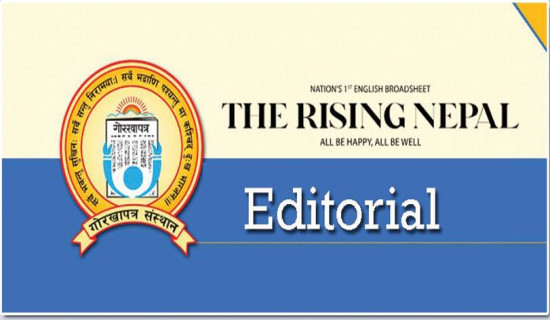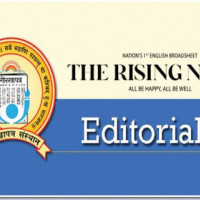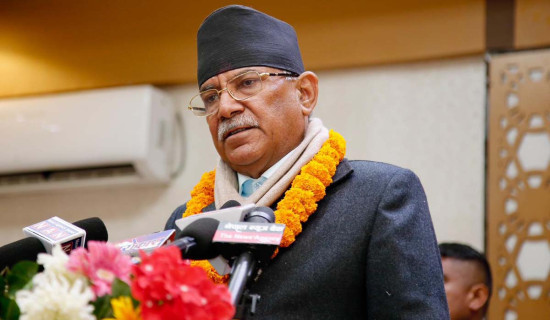- Friday, 23 January 2026
Overwhelming Mandate
After securing a vote of confidence with a two-thirds majority in the House of Representatives (HoR) on Sunday, Prime Minister KP Sharma Oli-led coalition government is poised to carry out sweeping constitutional and economic reforms in the country. PM Oli, also the chairman of CPN-UML, bagged 188 votes out of the total 263 members present in the HoR meeting. Oli, who was appointed PM on July 14, also made public a seven-point agreement on the basis of which the Nepali Congress and the UML formed the new alliance, replacing the CPN-Maoist Centre-led coalition. In their accord, the two largest parties have pledged to constitute a national consensus government under Article 76 (2) with the involvement of other political parties to protect the national interests, maintain good governance through corruption control, speed up development works and ensure political stability.
With the resounding mandate, the coalition government primarily seeks to amend the constitution by reviewing its strengths, weaknesses and complexities seen in course of its implementation and devise related laws. The country could not see the stability even after the promulgation of new charter in 2015, which has a provision of its review in every ten years. Responding to the lawmakers’ queries, Prime Minister Oli said that the constitution is an amendable document and would be revised on the basis of consensus by taking the people’s need into account. “The amendment of the constitution is for progression, protection and consolidation of democracy, and prosperity,” said the PM. Apparently, PM Oli’s first priority is to muster consensus on statute amendment. But he is resolute to move on even if there lacks consent of all forces in revising the statute.
By disclosing their much-talked about deal in the parliament, the two largest parties want to win the confidence of other parties and people, and demonstrate their commitment to maintaining stability essential to rejuvenate the economy, boost domestic and foreign investment and create employment opportunities. As per the agreement, Oli will lead the national consensus government for the first two years and NC president Sher Bahadur Deuba will oversee the election government. In order to avoid possible misunderstanding, the two parties have decided to lead, participate in and run the government on the basis of equality and equal status, and common minimum programme. Deuba said that the government would swiftly move to deliver stability, obtain fast growth, increase jobs and expedite the construction of physical infrastructure.
In his speech, PM Oli offered the vision of new dispensation and insisted that the Maoist Centre-led government could not give way out of pressing problems facing the nation. In the changed context, the new government is likely to amend the current fiscal year's budget to meet its goals. It has focused on rapid economic growth, increase in production, reduction in trade deficit, completion of development projects within the stipulated timeframe and eradicate poverty and hunger. More than six million people are living under absolute poverty, the business sector is struggling to come out of recession and the youths are leaving the country in droves. The new administration is expected to end the widespread frustration and rekindle the people's hope and enthusiasm. Given that there is weak opposition in the House, the two big parties require taking other forces into confidence and must abide by basic democratic values and constitutional norms while taking major steps of national importance.

















